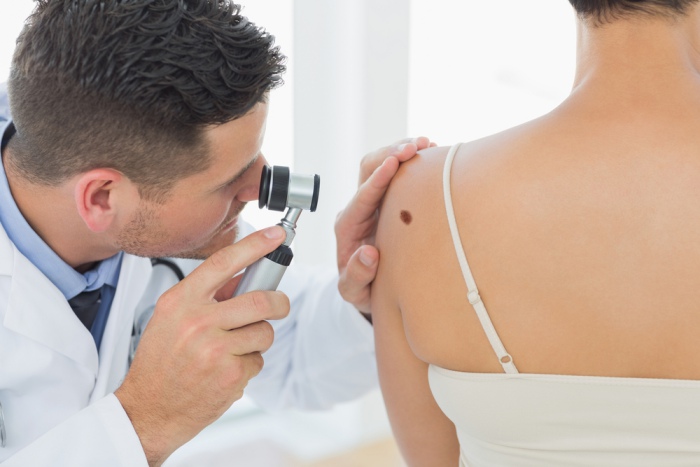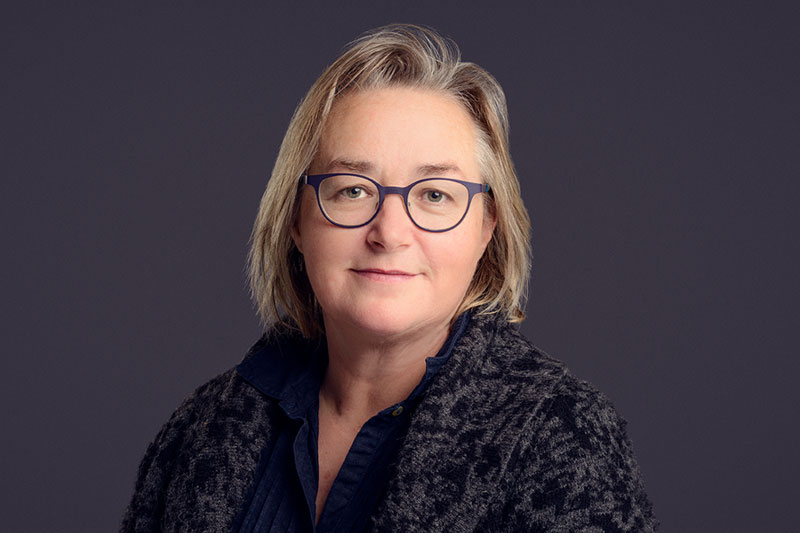Moles and Melanoma Treatment in Harley Street, London
The appearance of a new mole, or changes in the size, shape or appearance of existing moles can, on rare occasions, be a sign of a type of skin cancer called melanoma. So what exactly is melanoma, why does it happen and what can be done about it?

What is melanoma?
Melanoma is an aggressive type of skin cancer that, if left untreated, can spread rapidly to the lymphatic system and other organs of the body, such as the liver and the lungs.
Listen to Dr Jane McGregor talk about Melanoma
Fortunately, melanoma is quite a rare form of cancer, with only around 13,000 cases each year in the UK. This compares to over 40,000 cases of bowel and lung cancer and over 50,000 cases of breast cancer per year. Many people assume that skin cancer comes with age, after many years of sun exposure, however, Melanoma affects young people more than most other cancers.
Melanoma is the most prevalent cancer amongst 15-34 year olds, so it’s never too early to start regular mole screening for all members of your family.
Melanoma is also the one of the most deadly cancers, with over 2,000 deaths per year, accounting for the majority of skin cancer deaths. However, it is also one of the most easily, and successfully cured, as long as the cancer is identified early enough. With this in mind, the importance of regular mole screening and self checking cannot be overstated.
What causes melanoma?
Melanoma is a fault in the skin cells that makes them develop in an abnormal way. No one knows exactly what causes melanoma skin cancer, although there are a number of risk factors that have been identified. You are more likely to develop melanoma if you have:
- Pale skin that burns rather than tanning
- Ginger or blonde hair and blue eyes
- Many existing moles and freckles
- A family history of melanoma
- A medical condition that reduces your immune system, or you are taking drugs that suppress it
Enquire about
Skin Cancer
How is melanoma diagnosed?
Suspected melanomas are identified by observing differences in your existing moles, using the ABCDE system of comparison, or new moles that suddenly appear. If a mole is suspected of being cancerous, the diagnosis will be checked by taking a biopsy, in which some or all of the mole is removed and examined under a microscope to see if it contains cancer cells.
It is important to remember that melanoma is a rare condition, and most moles that are biopsied will come up negative for cancer, however it is always best to have these moles checked to be sure.
How is melanoma treated?
If it is caught early, the standard treatment for melanoma skin cancer is the surgical removal of the cancerous cells. If all the cells are successfully removed, there is little chance that the cancer will return.
If the cancer has spread to the lymph nodes, then these too will need to be removed. You will also need close monitoring and further treatment to avoid the cancer returning. If the cancer has spread to other organs you may be offered other treatments such as chemotherapy.
Skin Cancer Treatments
Mohs Micrographic Surgery
Mohs micrographic surgery involves the removal of cancerous tissue from the tumour, then the immediate examination [...]
Read MorePhotodynamic Therapy (PDT) London
Photodynamic therapy (PDT) is an advanced technique for treating some types of skin cancer and skin conditions that[...]
Read MoreMole Removal in London
If you have a mole that has grown, changed colour or started to bleed or weep, your dermatologist may advise that i[...]
Read MoreSkin Cancer Surgery on Harley Street, London
Surgery is usually the primary treatment for skin cancer. Skin surgery is used to take samples for biopsy and it ca[...]
Read MoreWhy use the Devonshire Clinic?
Our Dermatology Specialists
Our team of skin specialists at our dermatology clinic in London have many years of experience in treating patients with skin conditions. We understand your issues and aim to tailor our service so that you feel comfortable and reassured. Learn more about our dermatology consultants below.
Dr Conal Perrett
Consultant Dermatologist
& Dermatological Surgeon
Dr Conal Perrett is a leading Consultant Dermatologist & Dermatologic Surgeon practising at The Devonshire Clinic. Dr Perrett has expertise in general Dermatology and a specialist interest in skin cancer and skin surgery, utilising the most advanced high-tech equipment and techniques, including Photodynamic therapy (PDT), lasers and Mohs micrographic surgery.
Dr Jane McGregor
Consultant Dermatologist
For over 30 years, Dr Jane McGregor has provided expert dermatological care to patients. She has expertise in photobiology, skin cancer, sun allergy and dermatology. Dr Jane McGregor is an internationally recognised specialist in her field of skin cancer and skin disease for organ transplant recipients.
Dr Ian Logan
Consultant Dermatologist and Dermatological Surgeon
Dr Ian Logan specialises in skin lesion diagnosis and removal, skin cancer, skin surgery, Mohs micrographic surgery and general dermatology. Dr Ian Logan has received higher specialist training after completing a fellowship in Mohs Surgery and Advanced Dermatological Surgery at Cambridge University Hospitals NHS Trust.
Professor Christopher Griffiths
Professor of Dermatology
Chris Griffiths is Adjunct Professor of Dermatology, King’s College London, Consultant Dermatologist, King’s College Hospital and Emeritus Professor of Dermatology University of Manchester. He qualified in medicine from St Thomas’ Hospital Medical School and trained in dermatology in London and Michigan.
Dr Elizabeth Kulakov
Consultant Dermatologist and Dermatological Surgeon
Dr Elizabeth Kulakov is the Skin Cancer Lead at University College London Hospital NHS Trust. Dr Elizabeth Kulakov specialises in skin cancer, skin surgery, Mohs micrographic surgery and general dermatology.
Dr. Carolina Fernandez
Consultant Dermatologist
Dr. Carolina Fernandez is a consultant dermatologist affiliated with Imperial College Healthcare NHS Trust. She graduated from Imperial College London Medical School, where she obtained her medical degree in 2009.
Dr Rachel Sidwell
Consultant Dermatologist
Dr Rachel Sidwell is a highly experienced Consultant Dermatologist. Whilst she consults on all skin issues including skin cancers and general Dermatology, she has special expertise in paediatric dermatology.
Dr James Wilson
Consultant Clinical Oncologist
Receiving a cancer diagnosis can be overwhelming. You need somebody you can trust to guide you through the many investigations needed and get you to treatment as soon as possible. We will define your treatment plan together – whether our goal is cure, or to enhance the quality of your life.
Shahme Farook
Consultant Head and Neck/Reconstruction and Oral and Maxillofacial Surgeon
Shahme Farook is a Consultant Head and Neck/Reconstruction and Oral and Maxillofacial Surgeon at Northwick Park Hospital.
Dr Daniel O’Driscoll
Consultant Dermatologist
Dr Daniel O’Driscoll is a consultant dermatologist with an NHS practice at Hammersmith Hospital, part of Imperial Healthcare NHS Trust. He trained at Oxford University Medical School, undertaking an intercalated MA in Medical Sciences.
When you are faced with difficult medical choices or uncertainty and you want clarity about your diagnosis and the treatment that you will receive, then getting a second opinion from a private doctor can help put your mind at rest.
Read our
Patient Stories
I can’t recommend this clinic highly enough. The treatment I received for my skin cancer was first class
AL, LondonThe team at the Devonshire Clinic were excellent. From booking my appointments to every part of my treatment, I felt that I was in the very best hands.
CH, LondonBefore visiting the clinic I had quite high expectations, but I was blown away by just how brilliant the experience was. I felt like I was the only patient in the clinic. Simply the best medical treatment.
SF, London